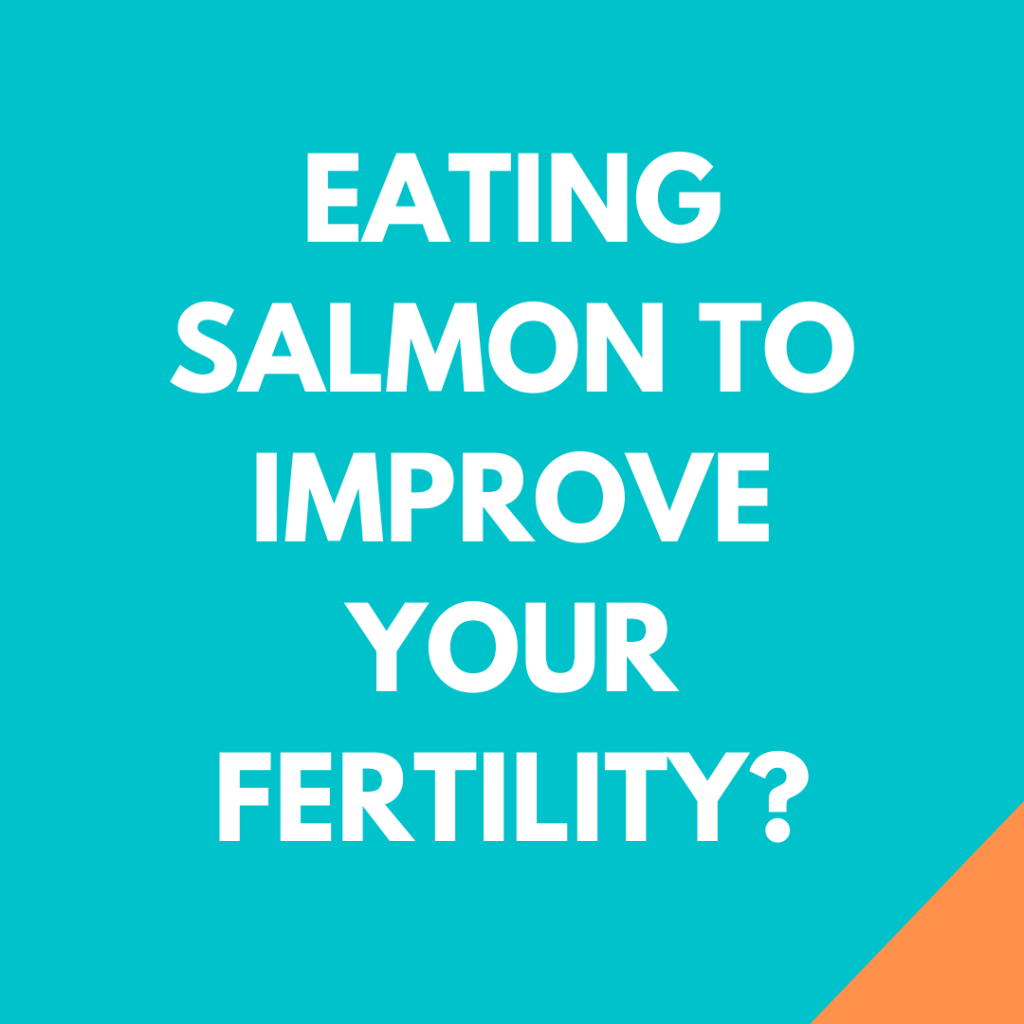We may earn a commission from affiliate links on this page.
In this first part of my Foods for Fertility series I’ll give you the scoop on the best fertility diet philosophies -backed by science-.
In the next parts, I’ll give you all the detail on how proteins, fats, dairy, and other food groups can help or hurt your fertility. Yup, I wasn’t kidding when I said this is the ultimate fertility diet guide! Let’s get to it!
Part 1. The Ultimate Fertility Diet: What To Eat When Trying to Conceive
Part 2. Meat, Poultry, Fish, Tofu: Which Protein is Best and Which is Worst for Fertility?
Part 3. Definitive Guide to Fats That HELP Fertility: Omega-3 and Other Fatty Acids
Part 4. Definitive Guide to Fats That HURT Fertility: Saturated Fats and Other Fats
Part 5. Sugar and Other Carbs Suck When Trying to Conceive
Part 6. Artificial Sweeteners When Trying to Conceive or Pregnant: Bad Idea?
Part 7. Two Reasons Coffee is Bad When Trying For a Baby
Part 8. Can I Drink Alcohol When Trying to get Pregnant?
Part 9. Dairy Can Help You Get Pregnant – Everything You Need to Know
Part 10. 10 Fertility Diet Tips to Implement Today
The quick win
Hold up! Before you continue reading, consider doing ONE easy thing that is known to boost fertility: taking a daily high-quality prenatal multivitamin. This is without doubt the easiest way to boost your fertility (here’s why). Personally, I love the Smartypants prenatal gummy (because it’s good and tastes yummy) and the Nature Made prenatal vitamin with DHA (because it contains all kinds of goodies that boost fertility and is a trusted brand). (affiliate links)
The Ultimate Fertility Diet
Trying to figure out whether that chocolate chip cookie will squash your chance of getting pregnant? Or whether you’re really confined to organic kale smoothies for months on end when trying to conceive?
It can be incredibly frustrating to Google for hours on end when all you want is to find is the truth, not some website trying to sell you a magic fertility pill. Trust me, I’ve been there.
That’s why I want to talk to you about your diet. To be exact, I want to talk to you about what type of diet works and what kinds of diets to completely avoid. Because when it comes to something like fertility the answer very rarely lies in the details, so there’s no need to put down that cookie you’re holding right now!
It’s all about the big picture.
Let’s start off by telling you some really good news:
Research tells us that you CAN improve your egg quality by making a few simple changes to your diet. And I’ll let you in on a little secret: it’s not just your eggs that matter. Your partners sperm quality can absolutely be changed for the better too! All it takes is a 3-month head start (that’s how long it takes to make new sperm!).
Cooking together is fun, but eating together? EVEN BETTER! If you both make a few dietary changes, you’ll both become that much more fertile.
So now you must be asking: “Katelyn, what diet should I follow to boost my fertility?” Well, let me tell you…
The Mediterranean Diet

Enter the Mediterranean diet. It’s not so much a strict diet but more of a loose collection of ideas about food and lifestyle. This is what you would consider food from Spain, Greece, Italy or other Mediterranean countries.
This dietary pattern has been linked to some amazing healthy outcomes, including increase of lifespan, decrease in the chance of heart disease, cancer and Alzheimer’s disease.1
And just in case you’re wondering (hey, there’s always someone!), Italians don’t just eat Pizza! The Mediterranean diet food pyramid looks something like this:2
Eat a Lot of (nearly every meal):
- Fruits & Vegetables
- (whole grain) Bread
- Olive oil
- Beans
- Nuts
- Legumes
- Seeds
- Herbs and spices
Eat a good amount of (at least twice a week):
- Fish high in Omega-3 (salmon, mackerel, herring, anchovy, trout)
- Other seafood (shrimp, oysters etc.)
Eat moderate amounts of:
- Poultry (chicken & turkey)
- Eggs
- Cheese
- Yogurt
Sometimes eat:
- Meats (beef, pork)
- Sweets & pastries
Mediterranean diet vs. Western diet
A Mediterranean diet is different from what we typically eat in “The West”, the so-called “Western” style diet (a very surprising name, I know). This is characterized by high consumption of:
- Potatoes (instead of beans, seeds and legumes)
- Meats, including red meat (instead of fish)
- Refined grains, such as white bread (instead of whole grain breads)
- And more processed and sugary products
But what does this have to do with fertility? Well, a large study conducted among more than 2,000 women in Spain looked at different diets and how they influence fertility. They found that adherence to a Western diet was not linked to infertility problems per se, but adherence to the Mediterranean Diet was linked to a 44% lower chance of having problems getting pregnant.3
In other words, a Mediterranean Diet rich in fish, vegetables and olive oil, may in fact enhance fertility.
In a Dutch study, 161 couples underwent IVF treatment and dietary patterns of the women were recorded.4 The researchers found that adherence to a Mediterranean diet, that is a diet with a high intake of vegetable oils, fish, vegetables and legumes, was associated with a 40% higher chance of becoming pregnant. Similarly, a 2018 IVF study from Greece looked at 244 women, and found that better adherence to a Mediterranean-style diet resulted in much better odds of getting and staying pregnant.5
So when you’re feeling up for shepherd’s pie, think eggplant lasagna instead. And when you’re craving fried catfish, maybe go for paella instead!
Why is Mediterranean diet good for fertility?
The Dutch researchers also found some particularly interesting reasons for why a Mediterranean diet is beneficial to fertility. A deficiency in certain B vitamins, specifically folate, B6 and B12, results in the accumulation of the harmful amino acid called homocysteine. And let me tell you, the research is clear: high homocysteine levels are terrible for your fertility!
IVF studies tell us that high homocysteine levels lead to fewer available eggs, and both egg and embryo quality are negatively influenced.6,7 Needless to say, B vitamins are really important and a Mediterranean diet supplies plenty of those through fish, beans and poultry!
Another reason the Mediterranean diet is good for fertility lies in the high consumption of “good” fats (Omega-3 from fish oil) and very low consumption of “bad” fats (saturated fats from meat and sweets), but more on that in another article.
Next Up: “The Fertility Diet”

A group of scientists set out to come up with an even better “fertility diet” than the Mediterranean diet. I don’t know if they succeeded (at least in the taste department!), but we can say that it is backed by (some) research!
Have you ever heard of the Nurses Health Study?8 Well, this study is perhaps our greatest resource of information on diet and fertility. Thousands of women participated in this study throughout the years, starting in the 1970’s, and in the second round of the study, a specific part of the questionnaire was reserved for studying the dietary patterns of women trying to conceive.
Every two years women received a questionnaire about their dietary patterns and they were asked if they were trying to get pregnant. Years later, researchers could look back at this data and try to find dietary patterns of couples who had trouble conceiving. The researchers were most interested in something called “ovulatory disorder” as the reason for having trouble getting pregnant. In other words, infrequent, non-existent, or irregular ovulation and menstrual cycles.
Let me tell you, the researchers really did their homework and investigated so many different aspects of food and ovulatory disorder infertility. So it should come as no surprise that they also tried to put all of their research findings together into a single fertility optimized diet.9
Here’s what the researchers determined to be important in an optimal fertility diet:
More of:
- Unsaturated fats
- Vegetables
- Full-fat dairy
- Take a multivitamin supplement and iron
Less of:
- Trans fat
- (red) Meat
- Low fat dairy
- Sugar and simple carbohydrates
The women who had such a diet were 66% less likely to have ovulatory infertility! 66%! That’s really good!
Come to think of it, this isn’t all that different from a Mediterranean diet! You’ll notice there’s one glaring omission here: fish. These studies were done more than 10 years ago, and back then the evidence of fish consumption wasn’t as clear as it is now.
It’s perhaps not that surprising that a simple diet of healthy natural foods is good for your fertility, but at least we now have the science to back it up. Will changing your diet guarantee you’ll get pregnant quickly? No, it won’t. But taken together with all the other lifestyle improvements you can make, it may just tilt the odds in your favor!
Price: $17.27 ($0.14 / Count)
1 used & new available from $17.27 ($0.14 / Count)
Remember this
Whether you’re just starting out trying for a baby or you’ve been at it for a while, or even if you’re already pregnant, it’s a great idea to eat a healthy diet.
There’s some pretty compelling evidence that a Mediterranean style diet is especially beneficial to your fertility. If you’re already eating this way, keep doing what you’re doing! And if you’re not? Try swapping out 1 or 2 meals a week containing red meat with fish, add a bottle of olive oil to your shopping list, and add more veggies to your diet.
Just doing those 3 things means that you’re already setting yourself up for success!
References
1. Sofi F, Abbate R, Gensini GF, et al. (2010). The American Journal of Clinical Nutrition, 92(5), 1189–1196.
2. Mediterranean Diet. Oldwayspt.com
3. Toledo E, Lopez-del Burgo C, Ruiz-Zambrana A, et al. (2011). Fertility and Sterility, 96(5), 1149–1153.
4. Vujkovic M, de Vries JH, Lindemans J, et al. (2010). Fertility and Sterility, 94(6), 2096–2101.
5. Karayiannis D, Kontogianni MD, Mendorou C, et al. (2018). Human Reproduction, 33(3), 494–502.
6. Boxmeer JC, Macklon NS, Lindemans J, et al. (2009). Human Reproduction, 24(5), 1059–1066.
7. Forges T, Monnier-Barbarino P, Alberto JM, et al. (2007). Human Reproduction, 13(3), 225–238.
8. The Nurses’ Health Study.
9. Chavarro JE, Rich-Edwards JW, Rosner BA, et al. (2007). Obstetrics and Gynecology, 110(5), 1050–1058.




